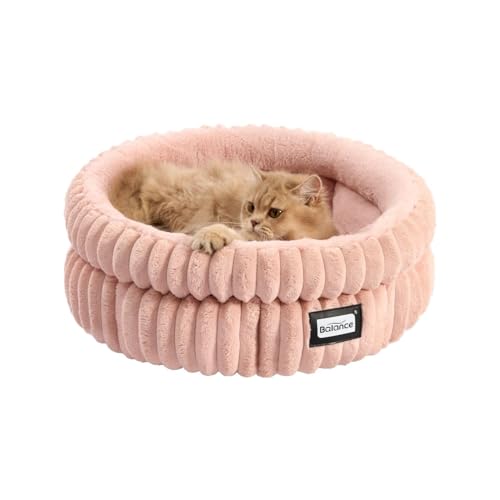Chihuahuas may be tiny, but when it comes to personality, they’re some of the biggest dogs in the room. Unfortunately, their bold attitude and pint-sized bodies often lead to a lot of misunderstandings—and a long list of behavior myths.
You’ve probably heard things like, “They bark too much,” “They’re mean,” or “They’re not good with kids.” While there might be a kernel of truth behind some of these claims, most are rooted in outdated beliefs or a lack of proper training and socialization.
In this post, we’ll break down some of the most common Chihuahua behavior myths, separate fact from fiction, and help you better understand this unique and lovable breed. Whether you’re a first-time owner or just tired of defending your pup’s reputation at the dog park, this guide is for you.
Let’s bust some myths!
Myth #1: “Chihuahuas are Always Yappy”
This is probably the most common stereotype about Chihuahuas—and while it’s true that they can be vocal, the idea that they bark non-stop just isn’t fair.
The Truth:
Chihuahuas tend to be alert, observant, and naturally protective of their space and people. Their barking is often their way of communicating:
- Alerting you to someone at the door
- Reacting to unfamiliar sights or sounds
- Expressing boredom or frustration
- Seeking attention
Small dogs are often more reactive because the world feels bigger and scarier to them. Barking is part of how they navigate it.
How to Help:
The good news? Excessive barking can be managed with training, patience, and mental stimulation:
- Teach a “quiet” command using positive reinforcement
- Avoid accidentally rewarding barking (e.g., giving attention when they bark for no reason)
- Provide puzzle toys or treat-dispensing toys to keep their mind busy
- Use a vibration collar or clicker for gentle behavior correction
With the right guidance, your Chihuahua can learn to bark only when necessary—and still keep their job as your fearless little watchdog.
Myth #2: “They’re Aggressive and Snappy”
Chihuahuas often get labeled as aggressive or “nippy,” especially compared to larger, calmer breeds. But that reputation usually stems from misunderstanding their behavior, not from the breed itself.
The Truth:
Most so-called aggression in Chihuahuas is actually fear-based reactivity. They’re tiny dogs living in a big world, and when they feel unsafe, their instinct is to defend themselves, especially if they haven’t been properly socialized or trained to handle new situations.
Some reasons a Chihuahua might snap or growl:
- Feeling cornered or picked up too quickly
- Being handled roughly (especially by children)
- Fear of unfamiliar people or animals
- Pain, illness, or discomfort
Chihuahuas aren’t naturally mean—they’re just sensitive, and when they feel threatened, they defend themselves the only way they know how.
How to Help:
- Socialize early and often: Introduce your Chihuahua to people, pets, and environments in a gentle, positive way.
- Respect their space: Let them approach new people and animals at their own pace.
- Watch their body language: Look for signs of stress like tucked tails, growling, or wide eyes, and give them space when needed.
- Use positive reinforcement: Reward calm behavior, and never punish fear-based reactions.
With trust, patience, and positive interactions, even the most reactive Chihuahua can become a confident, friendly companion.
Myth #3: “They Don’t Need Training Because They’re Small”
This myth is surprisingly common—and harmful. Many people assume that because Chihuahuas are tiny and easy to carry, they don’t really need training like larger dogs do. But skipping training leads to frustration for both the dog and the owner.
The Truth:
All dogs, regardless of size, benefit from clear structure, boundaries, and communication. In fact, small dogs often need more intentional training because it’s easier for their behavior to be overlooked—or unintentionally reinforced.
For example, if a big dog jumps on a guest, it’s a problem. But when a Chihuahua does it, people often laugh or pick them up. This inconsistency teaches bad habits and can lead to confusion, anxiety, and behavioral issues.
Why Training Matters:
- Helps prevent unwanted behaviors like barking, nipping, or begging
- Builds confidence and reduces fear-based reactions
- Strengthens your bond and trust with your dog
- Keeps your dog safe in new or unexpected situations
How to Train Effectively:
- Use positive reinforcement—reward good behavior with treats, praise, or play
- Keep sessions short and fun (5–10 minutes is enough for small dogs)
- Be consistent with commands and rules
- Start with basics: sit, stay, come, leave it
Don’t let their small size fool you—Chihuahuas are smart, eager to learn, and capable of great obedience with the right approach.
Myth #4: “They’re Not Good with Kids or Other Pets”
Chihuahuas often get a bad rap as being unfriendly toward children or other animals. While it’s true they have strong personalities, this myth usually comes from poor introductions or a lack of supervision, not the breed itself.
The Truth:
Chihuahuas can absolutely get along with children and other pets—if they’re introduced properly and respectfully. The key is understanding that Chihuahuas are tiny and fragile, and rough handling can easily lead to fear or defensive behavior.
Sometimes, it’s not the Chihuahua that’s the problem—it’s how others interact with them.
Helpful Guidelines:
With Children:
- Teach kids how to interact gently (no grabbing, poking, or picking up the dog without permission).
- Supervise playtime to prevent accidental injury or fear-based reactions.
- Reward calm behavior on both sides—your pup and the child.
With Other Pets:
- Start introductions slowly and on neutral ground.
- Use leashes or barriers if needed to create safe boundaries.
- Monitor body language for signs of stress or overexcitement.
- Provide safe spaces (like a cozy crate or dog bed) where your Chihuahua can retreat and relax.
With time, patience, and positive experiences, Chihuahuas can become loyal, playful companions to both kids and furry siblings. Some even form incredibly strong bonds with larger dogs!
Myth #5: “They’re Lazy Lap Dogs”
Thanks to all the photos of Chihuahuas tucked into purses or curled up in cozy blankets, many people assume they’re content to lounge all day. While they do love snuggling, that doesn’t mean they’re lazy!
The Truth:
Chihuahuas are energetic, alert, and full of personality. They enjoy comfort, but they also need regular physical activity and mental stimulation to stay healthy and happy. When their energy needs aren’t met, they may become bored or anxious, which often shows up as barking, chewing, or other unwanted behavior.
What They Really Need:
- Short, daily walks to explore and burn energy
- Indoor playtime with small toys, fetch, or gentle tug
- Interactive toys and puzzles to challenge their mind
- Training sessions to give them a job to do—they love having a purpose!
Even a few minutes of active play and a 15–30 minute walk can make a big difference. Don’t let their small size fool you—Chihuahuas are little athletes when given the chance!
Conclusion
Chihuahuas may be small, but they’re full of spirit—and often misunderstood. From barking and training to energy levels and social skills, these little dogs are more complex (and capable!) than the stereotypes suggest.
Understanding the truth behind these common myths can help you be a more confident, compassionate owner and build a stronger bond with your pup. With proper training, socialization, and a bit of patience, your Chihuahua can be friendly, well-behaved, and an absolute joy to be around.
Let’s stop judging them by their size—or reputation-and—and start celebrating them for the loyal, smart, and loving companions they truly are.
Call to Action
Which Chihuahua myth have you heard the most?
Drop it in the comments on Facebook—we’d love to hear your story or clear up more confusion!
FAQ: Understanding Chihuahua Behavior
1. Are Chihuahuas naturally aggressive?
No—Chihuahuas are not inherently aggressive. They can become reactive if they feel threatened or unsafe, especially without proper training or socialization. Most “aggression” is fear-based and can be managed with positive reinforcement and gentle handling.
2. Why does my Chihuahua bark so much?
Chihuahuas tend to be alert and protective. They may bark to signal danger, express boredom, or get attention. Barking can be reduced with consistent training, routine, and mental stimulation.
3. Can Chihuahuas get along with kids?
Yes, with supervision and proper introductions. Children need to be taught how to handle small dogs gently. Chihuahuas can be affectionate with respectful kids and make great companions in the right environment.
4. Do Chihuahuas need daily exercise?
Absolutely! Despite their size, Chihuahuas have energy to burn. Daily walks and short play sessions keep them mentally and physically healthy—and prevent boredom-related behavior issues.
5. Are Chihuahuas hard to train?
Not at all. They’re intelligent and eager to learn but may have a stubborn streak. With positive reinforcement, consistency, and patience, Chihuahuas can be just as well-trained as any larger breed.
6. Can I leave my Chihuahua alone during the day?
Chihuahuas can tolerate short periods alone, but they thrive on companionship. If you’re gone for long hours, consider enrichment toys, a pet camera with treat dispensing, or arranging a midday visit.





